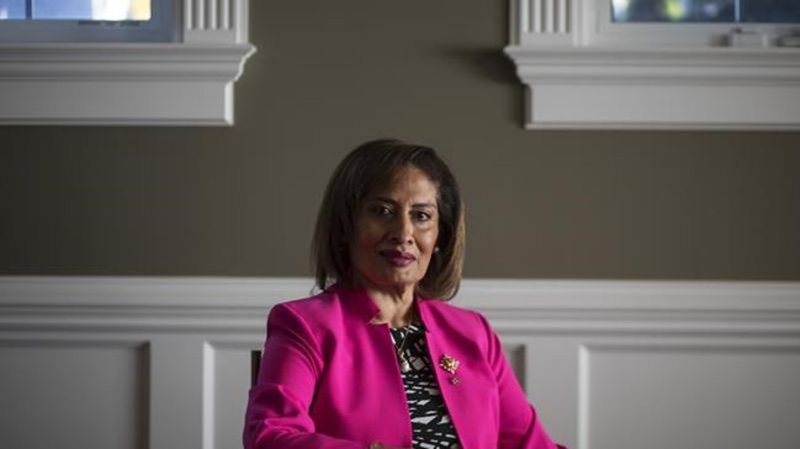
Alberta lieutenant-governor says not a done deal she’ll OK proposed sovereignty act
EDMONTON — Alberta’s lieutenant-governor says it’s not a done deal that she would automatically sign off on a proposal from a United Conservative Party leadership candidate to pass a bill aimed at ignoring federal laws and court rulings.
Salma Lakhani says she would seek legal advice as required, but says she is duty-bound to ensure the Constitution is followed.
“We will try and cross that bridge when we get to it, and we will get the appropriate advice that we need as to whether we can sign, whether it’s against our Constitution,” Lakhani said Thursday when asked about the sovereignty act bill proposed by former Wildrose party leader Danielle Smith.
Lakhani’s signature is required to have any law take effect. She acknowledged that some view her role as purely ceremonial and that she should simply sign any bill that passes the legislature and let the courts handle any disagreements.


